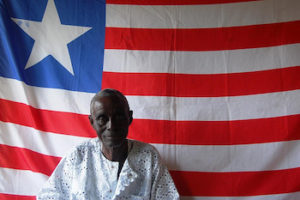
*The Americo-Liberian community is affirmed on this date in 1820. Congo people, or Congau people in Liberian English, are a Liberian ethnic group of African American, Afro Caribbean, and Liberated African descent.
This date was chosen to align with the Mayflower of Liberia voyage to Liberia from the United States. The sister ethnic group of Americo-Liberians are the Sierra Leone Creole people, who share similar ancestry and related culture. Americo-Liberians trace their ancestry to free-born and formerly enslaved African Americans who emigrated in the 19th century to become the founders of the state of Liberia. They identified there as Americo-Liberians. Some African Americans following resettlement in Canada also participated as founding settlers in Sierra Leone, and other recaptured repatriates settled in present-day Côte d'Ivoire.
The terms "Americo-Liberian" and "Congo" had distinct definitions in the nineteenth century but are currently interchangeable and refer to a whole Black community composed of the descendants of the various people who settled in Liberia in 1822. The designation 'Congo' for the Americo-Liberian population came into common usage when these Black Africans from America integrated 5,000 liberated Africans called Congo’s (former slaves from the Congo Basin, whom British and Americans freed from slave ships after the prohibition of the African slave trade) and 500 Barbadian immigrants into the Americo-Liberian hegemony. Americo-Liberians rarely intermarried with indigenous West Africans.
Although Western literature and discourse in the United States and the United Kingdom use the term "Americo-Liberians," this term is outdated. In common parlance, the majority of Liberians (including the Americo-Liberian people themselves) and neighboring West Africans, such as Sierra Leoneans, refer to the Americo-Liberian people as "Congo" or "Congau" people. In addition to Indigenous Liberian chiefs and royal families, upper-class Americo-Liberians and their descendants led the country's political, social, cultural, and economic sectors; alongside Indigenous Liberian elites, upper-class Americo-Liberians ruled the new nation from the 19th century until 1980 as a small but dominant minority.
From 1878 to 1980, the Republic of Liberia was a de facto one-party state, ruled by elites of both the indigenous and Americo-Liberian dominated True Whig Party and Masonic Order of Liberia. Following the 1980 coup and the Liberian Civil Wars, thousands of Americo-Liberians settled in the United States in Maryland, Minnesota, New York, Pennsylvania, and places such as London in the United Kingdom. Although the Americo-Liberian diaspora is extensive in the United States and the United Kingdom, thousands of Americo-Liberians in Liberia in cities and towns such as Monrovia, Crozerville, and Careysburg. While globalization has carried African American culture worldwide, Americo-Liberians reproduced their cultural American continuity in Liberia. Its name means "land of the free," and it is considered the most American of African countries in terms of its political institutions.
The Liberian constitution, government structure, and flag resemble those of the United States. The former residences of Americo-Liberian families were built in the style of antebellum plantation homes they may have admired in the American South. Their language continued to carry elements of African American Vernacular English. By many accounts, Liberians easily integrate into African-American communities. Liberian immigrants to the United States have the highest passport acceptance rates and the longest extension rates of any citizens of African nations. Although many of the upper-class Americo-Liberians left the country or were killed during the civil wars, and their houses and monuments crumbled, ordinary Liberians looked to the United States for aid. In 2007, BET founder Robert L. Johnson called for "African Americans to support Liberia like Jewish-Americans support Israel."